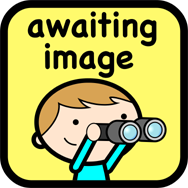






Friedrich Froebel was a German educator who developed the Kindergarten system in the early 19th century. His educational philosophy is known as the Froebel Method.
Froeberl had a significant influence on early childhood education. /
Here are some key aspects of the Froebel Method and how it differs from other early years teaching methods:
1. **Play-based learning with structured activities**: Froebel believed that play was the highest form of learning for young children. However, unlike some other play-based approaches that are entirely child-directed, Froebel introduced structured activities, such as building with blocks (Froebel's gifts) and engaging in artistic activities, to facilitate learning through play.
2. **Unity of head, heart, and hands**: Froebel emphasized the importance of integrating intellectual, emotional, and physical development in education. His activities and materials aimed to engage children's minds, emotions, and motor skills simultaneously, promoting holistic development.
3. **Symbolic representation through gifts and occupations**: Froebel developed a series of educational materials called "gifts" and "occupations" to facilitate children's exploration and expression of abstract concepts through concrete objects. For example, children might use wooden blocks (gifts) to represent mathematical concepts or engage in paper folding (occupations) to explore geometric shapes.
4. **Connection with nature**: Froebel valued the natural world as a source of inspiration and learning for children. He encouraged educators to incorporate nature-based activities and observations into the curriculum, fostering children's appreciation for the environment and their connection to the natural world.
5. **Role of the teacher as facilitator**: Like many other early childhood approaches, the Froebel Method emphasizes the role of the teacher as a guide and facilitator of children's learning experiences. Teachers observe children's interests and abilities and provide appropriate materials and guidance to support their development.
While there are similarities between the Froebel Method and other early years teaching approaches, such as play-based learning and the emphasis on the teacher's role as a facilitator, Froebel's specific focus on structured play activities, symbolic representation, and the integration of head, heart, and hands distinguishes his approach from others.
What are the basic principles?
How can I incorporate this into my own practices?
Fantasy play
There is no activity for which young children are better prepared than fantasy play.
So I entered parenting with only 3 clear goals: to love, to cherish, and to listen. - Melissa Ridge Carter

We take the task of nourishing children’s minds and bodies very seriously and ensure that their diet at the daycare is healthy and well balanced.


